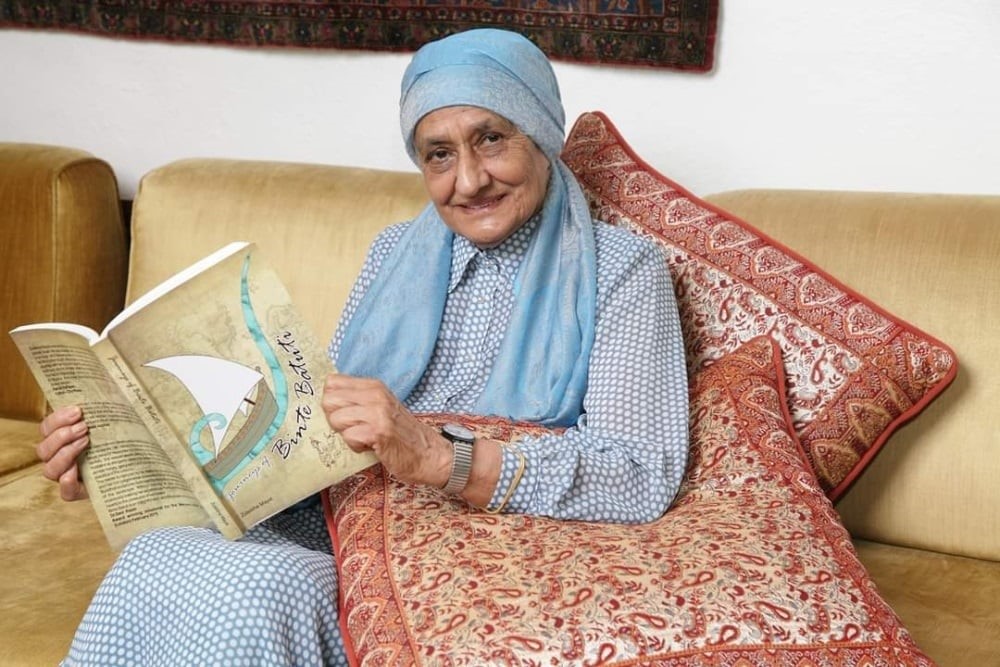
‘As a community activist, Zuleikha Mayat made us proud’, writes Fuad Hendricks, a former editor of Al-Qalam and leading figure of the Muslim Youth Movement.
South Africa’s celebrated human rights activist poet, Dr Don Umaruddin Matera told me that the Qur’an gives the good news to believers that when they live to serve humanity (then) success in this life and the life to come will be a promise fulfilled by Allah.
Zuleikha was a veteran in the sense that she committed herself to serving her society, country, and community right up to the end of her life (1926-2023).
It is easier to live as an individual than doing so as part of a structured organisation, formation where often the proverb plays out, “The highest trees get the most wind.” – “Die hoogste bome vang die meeste wind.”
Her famous recipe book ‘Indian Delights’ comprising culinary recipes contributed to by women who shared her sense of serving community, country, and society, summed up the ingredients of how she approached her life in a measured, balanced, thoughtful way to give her the delightful and desired outcomes.
The Women’s Cultural Group in which she played a leading role over decades was a force for the collective good of our society, country, and community. The Women’s Cultural Group’s bursaries ensured that those who seek to grow, develop, and educate themselves had the opportunities to advance their careers, entrepreneurial pursuits, and betterment of themselves. Education, which is the first Qur’anic commandment, was high on the agenda of Zuleikha and her dedicated group of activists.
Although Zuleikha was dedicated to the programme, goals, and collective aspirations of the Women’s Cultural Group, she was not an organisational tribalist. Her experience, wisdom, insight, foresight, and organisational and community experience benefitted other formations who often drew on her expertise to strengthen their initiatives.
In my personal experience and other Muslim Youth Movement activists, I found her forthright, outright, insightful, and farsighted outlook to be an asset to me and others.
“I will forever be indebted to her for speaking her mind on issues whether I agreed with her or not. Her courage, forthrightness, and deepened perspective of societal and community matters benefited me greatly and educated me to see matters from a broader and wider perspective.”
Zuleikha was expressive and impressive in the way she led the Women’s Cultural Group. She distinctively stood out as a leader by adapting to a changing context of emerging younger generations whose ideas parted ways with their peers. It was the Fourth Caliph of Islam, the honourable and distinguished Ali who said: “Every generation is born for its own time.”
Her perspective of Indian culture was not tribalistic, particularly, in a post-apartheid society where the emphasis and political correctness was racial and cultural diversity and inclusivity. She dismissed the caste mindset with disdain. She drew inspiration from her cultural heritage and upbringing to contribute in her distinct way to add value to society and country. Fundamentally, she did not see the ethos of Indian culture as a clash with Islamic civilization. To her, culture was the refinement of one’s way of life and it informed her approach to life. She consistently lived up to this ethos.
Zuleikha was an excellent conversationalist. When in conversation with her, she did not hesitate to ask tough questions and to challenge the familiar by triggering new reflections on important matters confronting our country and society.She was courageous to think out of the box even if it meant disturbing the complacent people who were averse to change and innovation.
Zuleikha was very loyal to her colleagues in the Women’s Cultural Group. She held them in exceedingly high esteem as community activists seeking the growth and development of their community and society. Close colleagues like Khurshid Nadvi, Ayesha Manjra, and others too many to mention by name were part of a closed-knitted friendship network.
Zuleikha and her colleagues in the Women’s Cultural Group have bequeathed to our society and community a rich legacy of community service. She will affectionately be remembered not only by her son Aslam and other siblings, grandchildren, the rest of the family, and friends but also by those whose lives were enriched because of her deep sense of community and organisational activism.
I certainly hold her in high esteem and was fortunate that I was able to interact with her as a member of the Muslim Youth Movement. Knowing her was memorable but interacting with her organisationally was uplifting.
Umaruddin Don Mattera defined brotherhood as “elevating your brother or sister in humanity.” Zuleikha did so with a deep sense of cultural delight.











